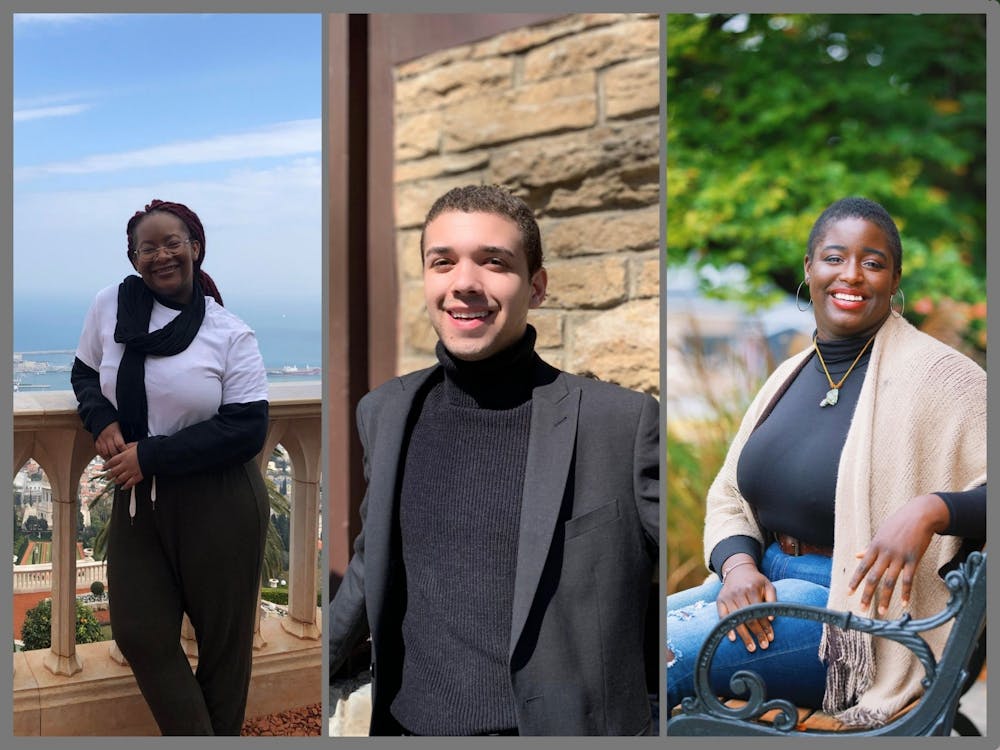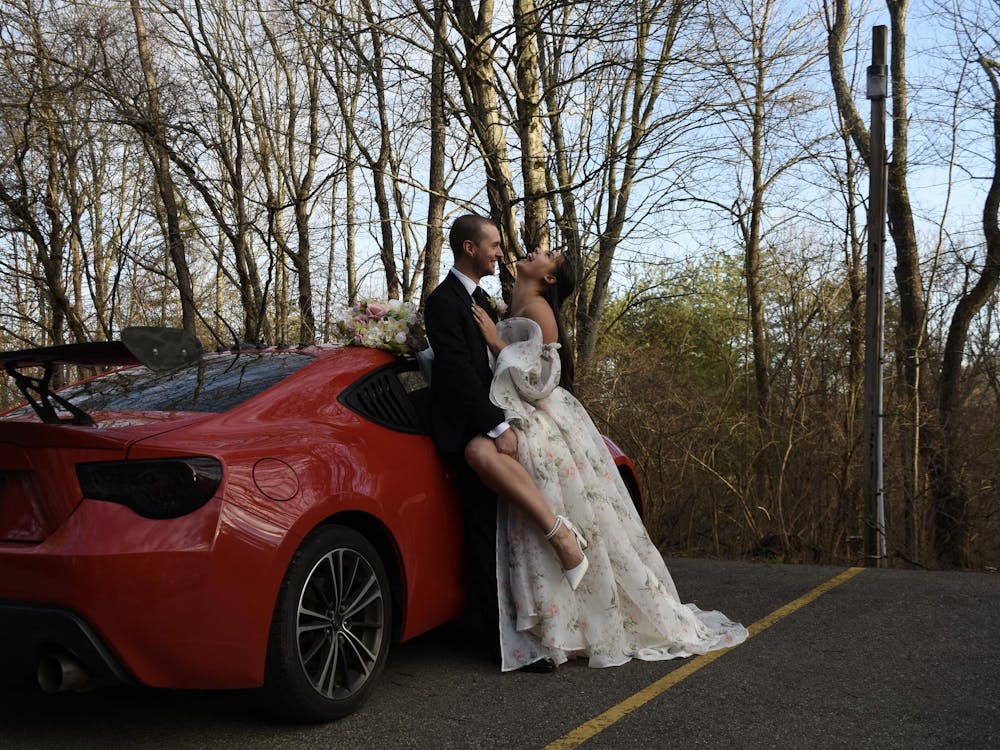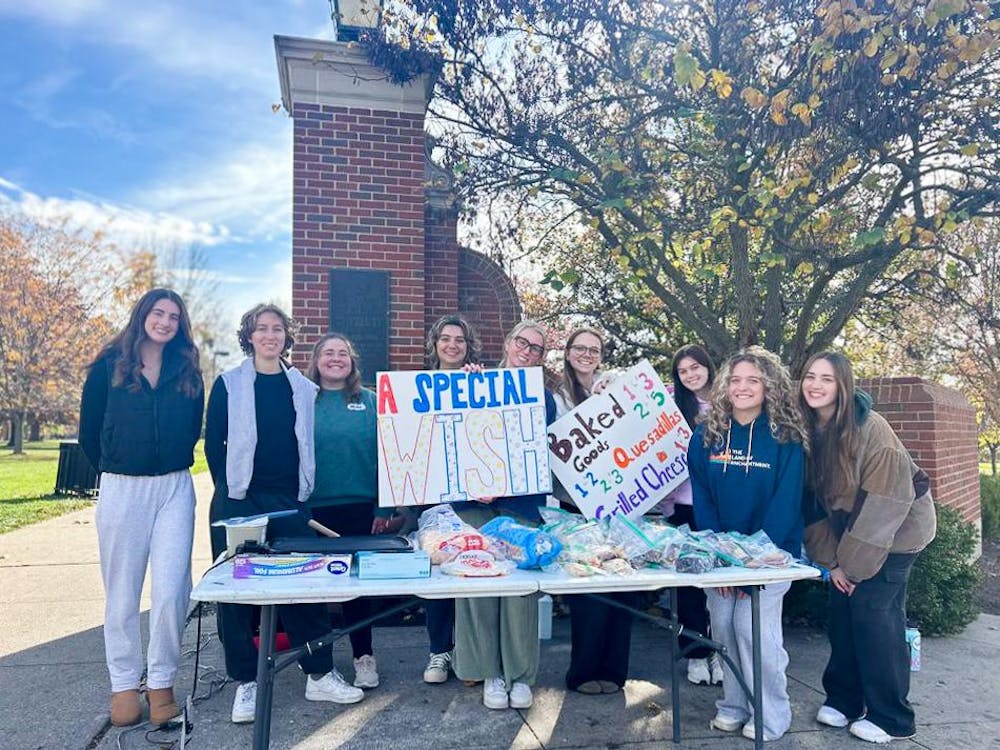After the murders of George Floyd, Breonna Taylor and countless other Black Americans and the historic election of Kamala Harris to the vice presidency, Black Miami University students are optimistic for the future while acknowledging that the fight for racial equality is far from over.
In honor of Black History Month, The Miami Student sat down with several Black student leaders to discuss the impacts of last summer’s civil unrest, the election of Joe Biden and Kamala Harris and the future that lies ahead.
Student Body President Jannie Kamara remembered the impact of Floyd’s death last May.
“It was hard to see the George Floyd murder,” Kamara said. “I felt desensitized to [Black Americans being killed by police] because of events that happened in 2014. I have completely disassociated myself from seeing black death.”
Athena Williams, president of the Black Student Action Association (BSAA), said the social media movement that followed last spring’s police killings had both highs and lows.
One of the biggest social media trends, #BlackoutTuesday, was intended to quickly spread awareness, but information got lost due to many people misusing the hashtag.
“The social media movement that followed was effective in getting global attention.” Williams said. “The unfortunate part of things going mainstream is the actual ideas behind the post gets watered down.”
Kamara agreed that activism should go beyond just posting a picture. She noted that because of her identity, she cannot leave her activism on social media.
“Many people have the choice to be able to take off their activist skin, but as a Black person, I do not have that privilege,” Kamara said.
The inauguration of Joe Biden and Kamala Harris has brought a sense of hope to Miami’s Black community, but students are still cautious of what lies ahead.
“I would not have wanted another four years of Trump,” Kamara said. “I am excited to see a reversing of Trump policies and to see how this country builds back its trust amongst each other.”
Though Kamara disagrees with some of Harris’ past actions, she is optimistic about the impact of the new vice president’s position.
Enjoy what you're reading?
Signup for our newsletter
“Though Harris’s track record isn't my favorite, her being in her position shows how far Black women’s effort has gone,” Kamara said. “While it is always encouraging to see the first, it is more encouraging to see tens and hundreds.”
Williams noted the Biden presidency will not be a cure-all for racism in America.
“The whole system is the problem, but Trump did inflame a lot of the ongoing issues,” Williams said.
While there is still work to be done at the national level, many Black students pointed out the work that still needs to be right here on campus.
“The school should not be trying to convince more diverse students to attend by only throwing money at them, but rather fix the structural and cultural issues first, so students want to come,” said Brandon Small, secretary of diversity and inclusion for Miami’s Associated Student Government.
Williams recognized the increase in events focused on diversity and inclusion but also pointed out that only people who already care about those topics show up.
“The school can put on as many lectures as they want, but that does not change the fact that most of the people who attend are minorities that want to learn more about their own history or students who are already interested in solving race issues,” Williams said.
Williams noted similar issues with programs like Black world studies.
“The experts in the Black world studies department do an amazing job at teaching Black history, but only the students who are not the problem are the ones who take those classes,” Williams said.
Kamara said the university needs to honestly confront its past.
“Miami should be more open to their dark history rather than highlighting the good they did during the Freedom Summer,” Kamara said. “Why does the university not discuss what the campus was like in 1809, so we can learn and apply that knowledge to make the school a better place?”
Kamara believes this Black History Month is unique. She witnessed the celebration of Black liberation but wishes to see more action at Miami.
“Particularly in the Miami community, we talk about and highlight Black voices, but what are we doing to actually change the social consciousness of students?” Kamara asked. “Ultimately, it comes down to how is the school challenging the thoughts and beliefs of students who come from privileged backgrounds and who don't have to question their experience in the world they are living in.”




